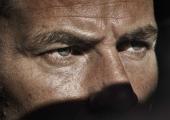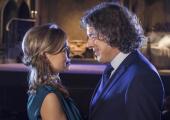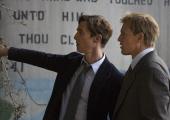Calvary

John Michael McDonagh follows 'The Guard' with an unconventional, blackly comic whodunit
"I first tasted semen when I was seven-years-old." Those are the first words spoken in Calvary, the superb second film from writer-director John Michael McDonagh. They're delivered by an unseen confessor addressing Father James Lavelle (Brendan Gleeson). The priest's response: "It's certainly a startling opening line." Well, quite. Evidently fucking with us from the off, Calvary wants to shock and is inclined to nod and wink at its own machinations.








